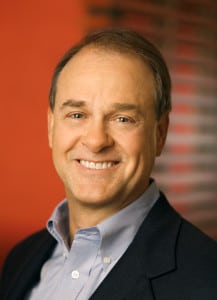Two years after the formation of the Non-Fiction Producers Association, longtime media exec and general manager of the NPA John Ford talks about the state of the industry for producers in an increasingly OTT world.
Cynopsis: Why was the NPA created?
 John Ford: The NPA – which is the first professional body representing the non-fiction content production business in the US – was created first and foremost to offer a platform for producers to exchange ideas, and to discuss and resolve issues that affect them, as well as buyers. Our goals also are to compile and distribute accurate information related to our business, and to define and promote best practices across the industry. We’re coming up on two years and now represent 39 major production companies.
John Ford: The NPA – which is the first professional body representing the non-fiction content production business in the US – was created first and foremost to offer a platform for producers to exchange ideas, and to discuss and resolve issues that affect them, as well as buyers. Our goals also are to compile and distribute accurate information related to our business, and to define and promote best practices across the industry. We’re coming up on two years and now represent 39 major production companies.
Cynopsis: What are the most surprising things you learned as GM?
Ford: Considering this is a group of highly competitive creative entrepreneurs, I’ve been surprised at how willing they are to share useful information with the whole group. When you think about it, that makes sense and it’s part of what’s driven our success; still, it was surprising to me at first. I’ve also been surprised at how active some of our members are in helping each other and the industry – there is real statesmanship in this group.
Cynopsis: What impact has the NPA had?
Ford: We’ve gotten the attention of the business affairs and production departments at various networks and network groups, especially when we present data on the industry that really are impossible to ignore or dispute. We’re all about the facts, and the facts of this industry are very compelling. Also, we’ve been able to focus our members’ attention on long-term strategic issues like insurance, healthcare, operating costs and the fundamental development process, as well as the emerging digital marketplace.
Cynopsis: Where do you see the state of the industry? What are the most pressing issues right now?
Ford: The industry is healthy, but it’s undergoing massive change in several respects. Networks are adjusting to challenges to their audiences’ attention. We have many more types of content services beckoning, OTT’s like Netflix, Amazon, Hulu and many others, and that means turbulence. Our producers believe network executives have become more risk-averse and are hedging their bets. There’s an intensified focus on alternative ways to engage viewers, though often without proven revenue models in those areas. In general, though, the news is positive. Business is up, after a slight down cycle last year, as commissioners realized they were short of premieres and needed more hours pretty quickly. In terms of pressing issues, based on our member feedback I would say retention of rights, backend income that is real, not phantom, and producer fees are the most prominent.
Cynopsis: What changes have you seen as networks work to cut costs, and how have you dealt with them?
Ford: Certainly, there is pressure on different fronts as issues like compression of production schedules, season-to-season price increases, producer compensation and EP fees all exist to varying degrees at different networks. However, hit shows tend to retain bargaining leverage. The issue is going to be what happens when quality suffers, as price pressure has its effects. We deal with this by pointing out the value our producers create and how cost-effectively they do it, and by emphasizing the long-term health of the creative partnership they have with the networks. We also use data to point to what I refer to as “sand in the gears” of the development, legal and production processes that costs both partners money and wasted time. They’re pretty receptive to that.
The Cynsiders column is a platform for industry leaders to reach out to colleagues, followers, and the public at large. In their own words and in targeted Q&As, columnists address breaking news, issues of the day, and the larger changes going on in the ever-evolving world of television, video and digital. Cynsiders columns live on Cynopsis’ main page and are promoted across all daily newsletters. We welcome readers’ comments, queries, and column ideas at [email protected].






